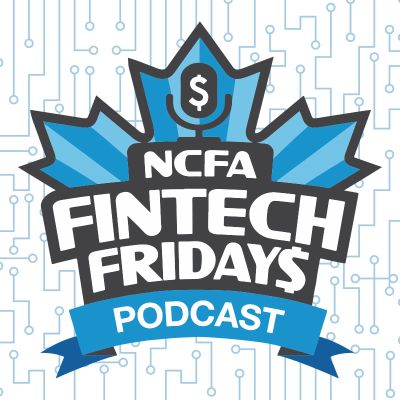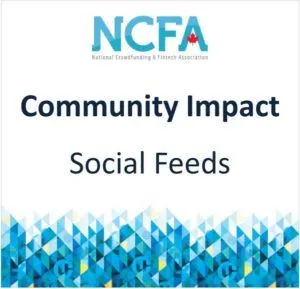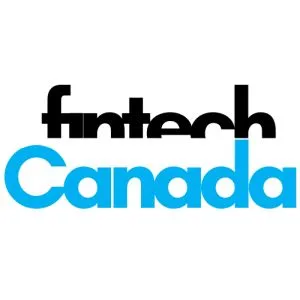Lynn Johannson, Advisor, Sustainability and ESG
January 4th, 2024
Financing | April 14, 2025

Image: Freepik
Financial infrastructure provider, Plaid, announced on April 3 2025, that they raised $575 million Series D at a valuation of $6.1 billion valuation led by Frank Templeton, BlackRock, Fidelity, and others including existing investors such as NEA and Ribbit Capital. While the valuation is significantly lower than it's 2021 peak of $13.4 billion, Plaid's latest round is a story of consolidation of it's role at the heart of embedded finance, and not of decline.
Plaid is a backbone of embedded finance with a footprint that spans more than 8,000 apps, including many widely used fintech tools and providers in Canada and the U.S. For Canadian fintech companies, this raise hints at where industry is heading and who will control its most critical pipes.
Unlike most fintech firms still chasing break-even, Plaid finished off 2024 with positive operating margins, strong ash flows and a 25% yoy revenue increase. In Plaid's letter to shareholders, 2025, CEO and Cofounder Zach Perret explained that it has a usage based billing model where Plaid earns revenue when an end user signs-up, takes actions in connected apps, or remains active on a per-user-per-month basis. In a market where profitability is favoured over growth at all costs, these numbers speak volumes.
The platform has achieved a core level of recurring annual revenue that allows it to reinvest confidentially in areas like AI powered fraud prevention and data-science enhanced credit scoring.
“Our core business has consistently grown double digits year-over-year despite 2022 and 2023 being the worst slowdown in fintech in the last two decades.”
Plaid's shareholder letter also reports that over 50% of Americans with a bank account have used the platform, either directly or through partner apps. Its customers include enterprise players like Affirm, Chime, Robinhood, SoFi, Citi, and H&R Block, plus thousands of fintech startups globally.
“Our products are the bedrock upon which many of the most well-known financial brands are built.”
Unlike past funding frenzies, this round was strategic, institutional, and about positioning control over the infrastructure of financial data, an area about to be transformed by AI and embedded finance.
In the past few years, Plaid has transformed itself from a bank linking utility into an infrastructure platform with multiple tools, such as alternative credit data, anti-fraud solutions, and bank payments infrastructure. CEO Perret explained that "New products represented >20% of ARR in 2024, compounding at 93% annually.” So it's no longer just about the interface, the tools and stack is consolidating into robust infrastructure.
A large portion of the funds are being allocated to convert restricted stock units (RSUs) into shares to provide liquidity for long term employees and retention strategy for talent. The rest of the funding will continue to support product development powered by data science, machine learning, and AI.
Plaid’s expanding capabilities also highlight Canada’s open banking delays. Canada is expected to implement open banking in 2026, but it doesn't have it yet, despite Finance Canada researching it and promising its implementation for years.
Without a formal framework in place, Canadian fintechs must rely on third-party data aggregators like Plaid to access banking information, including firms like Wealthsimple and KOHO. While using Plaid's banking access tools enables fintechs to get up and running quickly and innovate in the short term, it places critical infrastructure in the hands of foreign companies, raising concerns about data sovereignty and long term competitive capacity.
Daniel Eberhard, CEO of Koho to the House of Commons Standing Committee on Finance:
“In Canada, we do not have open banking. Every time we need to interact with the incumbent financial system, we’re forced to build workarounds.”
Plaid's $537 million strategic series D signals a consolidation of fintech infrastructure. Capital is becoming more selective and innovation is leading towards AI and embedded services, so the companies that control the access to data and financial infrastructure are gaining strategic ground. Canadian fintechs and policymakers of open banking in Canada should be watching developments closely to ensure Canada can remain competitive and not overly reliant on U.S. infrastructure.
 The National Crowdfunding & Fintech Association (NCFA Canada) is a financial innovation ecosystem that provides education, market intelligence, industry stewardship, networking and funding opportunities and services to thousands of community members and works closely with industry, government, partners and affiliates to create a vibrant and innovative fintech and funding industry in Canada. Decentralized and distributed, NCFA is engaged with global stakeholders and helps incubate projects and investment in fintech, alternative finance, crowdfunding, peer-to-peer finance, payments, digital assets and tokens, artificial intelligence, blockchain, cryptocurrency, regtech, and insurtech sectors. Join Canada's Fintech & Funding Community today FREE! Or become a contributing member and get perks. For more information, please visit: www.ncfacanada.org
The National Crowdfunding & Fintech Association (NCFA Canada) is a financial innovation ecosystem that provides education, market intelligence, industry stewardship, networking and funding opportunities and services to thousands of community members and works closely with industry, government, partners and affiliates to create a vibrant and innovative fintech and funding industry in Canada. Decentralized and distributed, NCFA is engaged with global stakeholders and helps incubate projects and investment in fintech, alternative finance, crowdfunding, peer-to-peer finance, payments, digital assets and tokens, artificial intelligence, blockchain, cryptocurrency, regtech, and insurtech sectors. Join Canada's Fintech & Funding Community today FREE! Or become a contributing member and get perks. For more information, please visit: www.ncfacanada.org
 |  |  |
Support NCFA by Following us on Twitter!Follow @NCFACanada  |
 State of Venture Q2, 2022: Funding Decreases by 23% QoQ
State of Venture Q2, 2022: Funding Decreases by 23% QoQ Feds to consider expanded services from banks, fintechs
Feds to consider expanded services from banks, fintechs NCFA Response to ASC Request for comments 45-108
NCFA Response to ASC Request for comments 45-108 U.S. bank regulator allows fintech firms to seek federal charter
U.S. bank regulator allows fintech firms to seek federal charter The Role of Artificial Intelligence in the Accounting Industry
The Role of Artificial Intelligence in the Accounting Industry 2014 Trends for Business Startups and Future Funders
2014 Trends for Business Startups and Future FundersJanuary 4th, 2024
January 25th, 2023
June 1st, 2021
September 9th, 2020
July 17th, 2020
August 22nd, 2019
September 26th, 2018
July 9th, 2018
March 19th, 2018
January 3rd, 2018
September 25th, 2017
July 31st, 2017
June 20th, 2017
May 10th, 2017
May 9th, 2017
December 14th, 2016

NCFA Canada
Craig Asano
CEO and Executive Director
casano@ncfacanada.org
ncfacanada.org









Leave a Reply